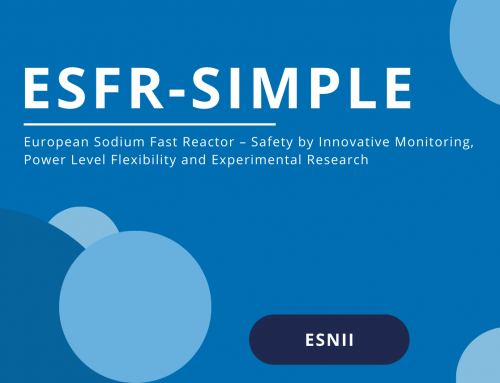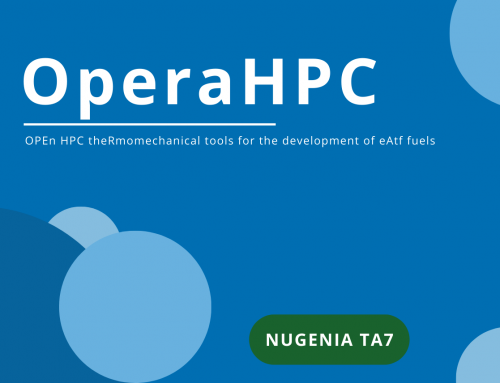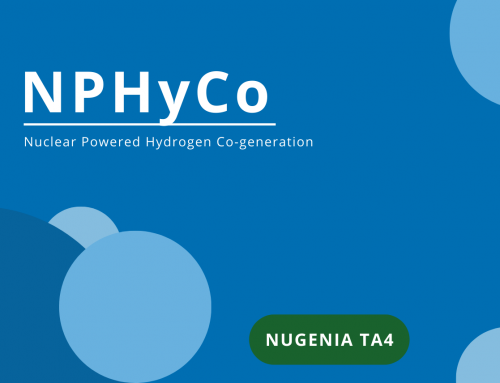
OBJECTIVES
High level objectives of the PREDIS project are:
- Develop solutions, methods, processes, technologies and demonstrators, for future treatment and conditioning of waste for which no or inadequate solutions are currently available, in order to avoid construction of new storage on sites, or
- improve existing solutions with safer, cheaper or more effective alternative processes with measurable benefits,
- Analyse criteria, parameters and specifications for materials and packages with associated Waste Acceptance Criteria (WAC) for pre-disposal and disposal activities.
These high-level objectives will be met by applying multi-disciplinary and multi-scale scientific approaches to demonstrate technical, economic and environmental feasibility of the new solutions, addressing project drivers from the end users’ points-of-view, fostering deeper cooperation between experts from many EU Member-states and across generations, training new experts in the field of pre-disposal waste management technologies and updating and revising pre-disposal guiding documents, together with the EURAD EJP executive bodies.

EXPECTED IMPACTS
Scientific and innovation impacts examples:
- Practical guidance on waste form qualification processes and on formulating generic waste acceptance criteria applicable for pre-disposal storage and eventual disposal.
- Making treatment and conditioning of problematic waste streams safer and more economically efficient, and increase the confidence about the long-term stability of the reconditioned wastes.
Business impacts by providing:
- An established voice of the radioactive waste producers/owners as the pre-disposal ‘user group’.
- Improved, consistent methodologies for waste characterisation, life cycle impact assessments, cost assessment, waste classification criteria.
- Possibilities to create new business offerings or service companies providing improved solutions for waste treatment, conditioning and reduction as well as monitoring of package performance with digital solutions.
Societal impacts:
- Implementation of new tools, materials, guidelines and standards will positively impact safety of people and the environment by more efficient handling of radioactive waste streams.

WORK PACKAGES
WP2 Strategic implementation
WP3 Knowledge management
WP4 Metallic material treatment and conditioning
WP5 Liquid organic waste treatment and conditioning
WP6 Solid organic waste treatment and conditioning
WP7 Cemented waste handling and pre-disposal storage

PARTNERS
VTT / NNL / JRC / IMT / CEA / SCK CEN / BAM / MAGICS / TUS / CTU / CVRez / SURO / UJV / UH / CNRS / ECL / IRSN / ORANO / DMT / FZJ / KIT / NCSR / ISOTOPTECH / SORC / TS Enercon / Ansaldo / ENEA / INFN / Nucleco / POLIMI / SOGIN / UNIPI / FTMC / NRG / IFE / RATEN / Amphos 21 / CIEMAT / CSIC / ENRESA / UAM / PSI / GSL / UoM / USFD / KIPT / SI IEG NASU

DURATION & BUDGET
September 2020 – August 2024 – 4 years
23.7 M€ total (14 M€ EC contribution)

CONTACT
Technical Project Leader:
Erika Holt (VTT)
Email: Erika.Holt@vtt.fi
Project Coordinator:
Maria Oksa (VTT)
Email: Maria.Oksa@vtt.fi

EVENTS
- PREDIS free on-line webinar series, Jan-March 2021 (see: https://predis-h2020.eu/events/)
- Discussion session at the SNETP Forum, Feb. 2021
- PREDIS next workshop May 2021, including public session for stakeholders

FOR DOWNLOAD

WEBSITE AND SOCIAL MEDIA
Check out the project website.

This project has received funding from the Euratom H2020 programme NFRP-2019-2020 under grant agreement No 945098.




